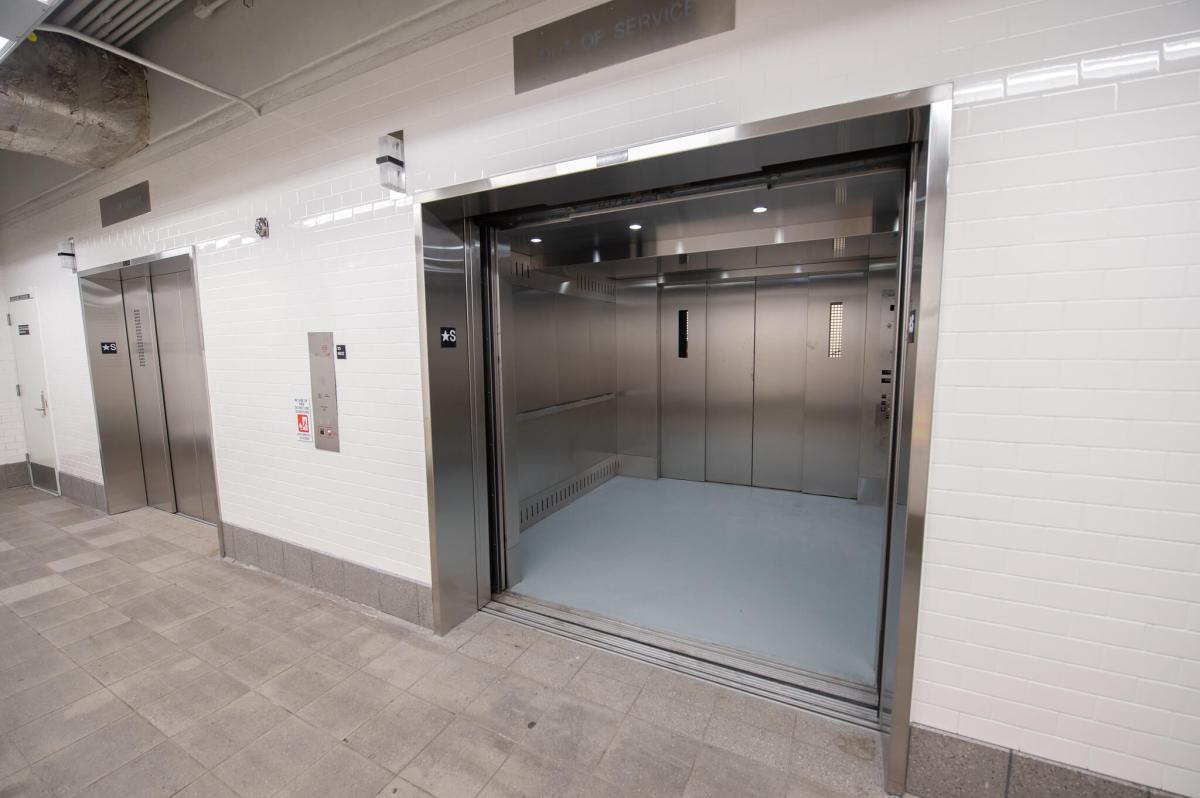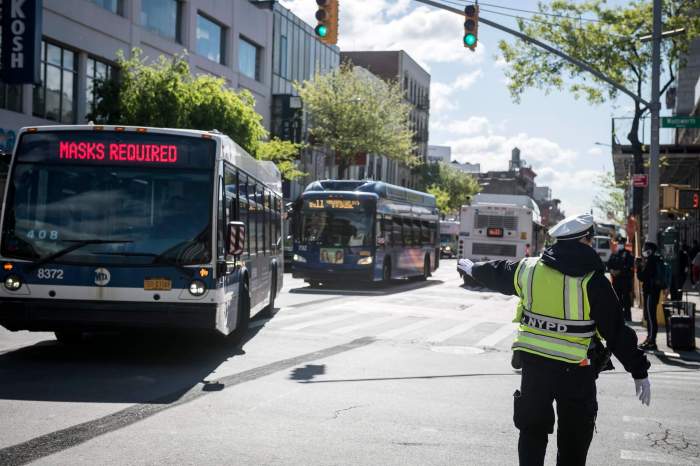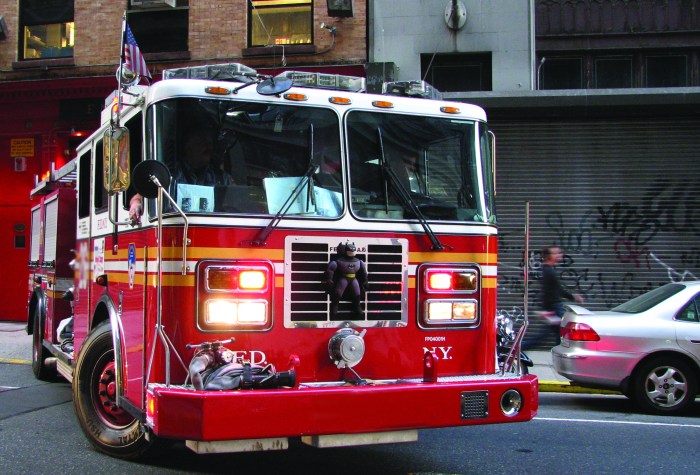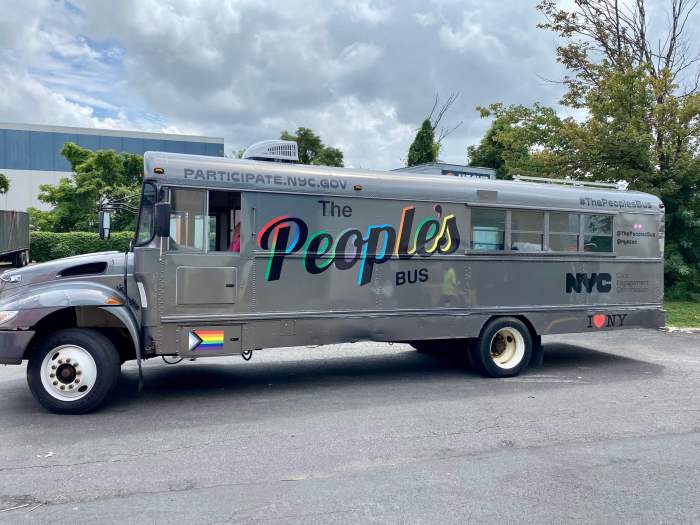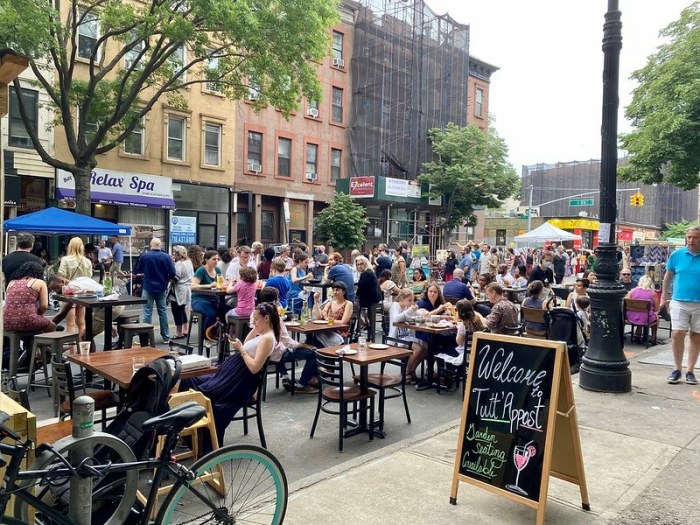Congress Member Adriano Espaillat sued the MTA on Thursday in an attempt to prevent the agency from moving forward with a plan to remove attendants from elevators at upper Manhattan subway stations.
Espaillat, together with a cadre of local electeds, Transport Workers Union Local 100, and disabled TWU employees, filed the suit in Manhattan Supreme Court Thursday aiming to stop the removal of staff from elevators at uptown stations on the 1 and A lines, which are some of the deepest belowground in the system. The move is set to go into effect on Sunday, July 16.
The plaintiffs say the MTA’s plan violates the state’s Public Authorities Law, which requires public notice and hearings in advance of plans to reduce or eliminate transit service. They also say the MTA is violating the city’s Human Rights Law, since the elevator attendants set to be removed have disabilities.
“I find it disheartening that the MTA is moving forward with its decision to remove attendants from the elevators at five subway stations in Washington Heights, many of which have been in place for seven decades,” Espaillat said in a statement. “Attendants provide an invaluable service to riders with disabilities and others who need assistance navigating these stations deep below street level. Additionally, this decision will impact dedicated subway workers, who will lose their jobs following their years of service to the MTA and these stations.”
“I am urging the MTA to solicit community input before decisions of this magnitude are made,” the congressman continued. “This decision regarding elevator attendants directly affects the public — yet, it was arrived at with little to no consideration from the public.”
The staffers are all officially on MTA payroll as station cleaners, but for decades, disabled employees have been able to go on “restricted duty” manning the elevators, according to TWU. If that’s no longer the case, the workers say they will be reassigned to cleaning tasks that they will be unable to perform.
“Subway riders want more staff in stations, not less,” said TWU Local 100 president Richard Davis in a statement. “For an agency that talks a lot about customer service, and wanting riders to feel comfortable and safe, this makes zero sense.”
The affected stations are 168th Street on the 1 and A lines, 181st Street on the 1 and A lines, 190th Street on the A, and 191st Street on the 1, all in Washington Heights. These are some of the deepest underground stations in the system, with 191st Street being the subway’s deepest at 18-stories beneath Manhattan.
The stations are also unique in boasting platforms that are only accessible by elevator; the only other similar station in the five boroughs is Clark Street in Brooklyn Heights.
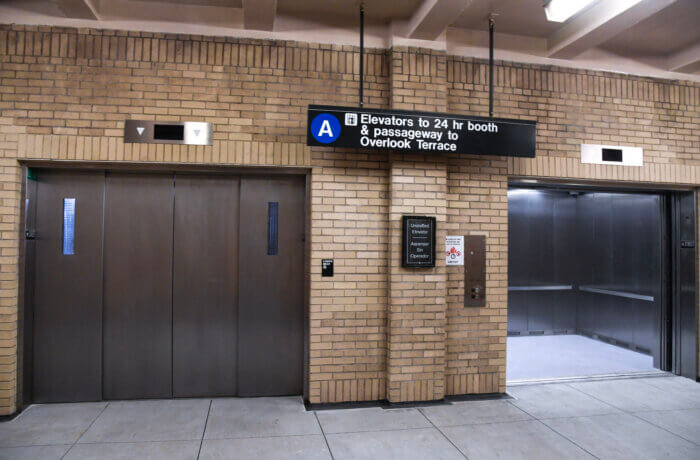
The plaintiffs say removing attendants will “reduce public safety” at the stops and “serve to bar people with disabilities from entering
the stations with these elevators.” Despite only being accessible by elevator, not all of the platforms are considered accessible under the Americans With Disabilities Act.
The union and pols were joined as plaintiffs by four of the 19 attendants set to be reassigned, each of whom have disabilities. Instead of being laid off, the employees were made to select different duties in this summer’s job “pick,” as elevator positions were no longer available. Many of their duties will now involve cleaning bathrooms.
But the reassignment is not tenable for Brian Brooks, Lourdes Bochelli, Brenda Wicker, and Edith Aponte, all of whom have disabilities that render them unable to perform the alternative cleaning work. The four have been elevator attendants for years, and secured their jobs as accommodations for their disabilities.
“A regular cleaning job, they’re back and forth on the stations doing this, that, and the other, and you have more than one station most times. They’re like constantly moving, I couldn’t do that,” said Brooks, who works at 190th Street and has a heart condition that makes walking a challenge, in an interview with amNewYork Metro.
“[New York City] Transit, they forced me to pick a job that, I don’t know, I think it’s gonna kill me,” Brooks continued. “But what can you do.”
The four plaintiffs were informed they will be put out of work on July 16 and, if they cannot perform their new duties, will not get paid, according to the suit. Brooks, who has worked on the elevator since becoming disabled, said he will reluctantly have to retire instead of performing the bathroom duties.
“They don’t care about the little guy, we’re like the lowest people on the totem pole,” said Brooks. “Our department is disrespected all the time. If there’s any cuts to be made or anything they want to do, it’s always in our department. Always historically been like that.”
Elevator attendants’ jobs have repeatedly been proposed for the chopping block over the past two decades, with the MTA hoping to eliminate them as a cost-cutting measure since the elevators buttons can be pushed manually, but each time the authority has backed down amid pressure from the union and elected officials.
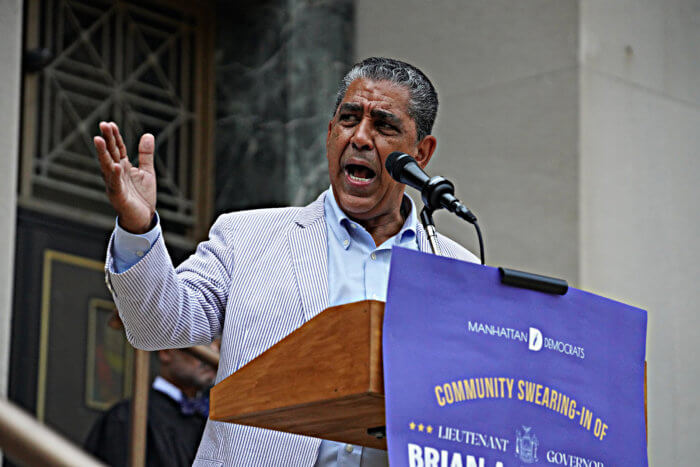
TWU contends that the attendants are a warm and helpful presence for riders in the cavernous, deep-underground stations in Washington Heights. They also can serve as a deterrent against crime at stations like 191st Street, where drug use is common, according to local State Senator Robert Jackson.
“The TWU workers who staff our Washington Heights elevators are beloved by our community, as many are longtime MTA employees and residents of the neighborhood. This familiarity is valuable for our community,” Jackson wrote in a May 25 letter to the MTA, which was also signed by Manhattan Borough President Mark Levine, Assemblymembers Manny De Los Santos and Al Taylor, and Councilmember Carmen De La Rosa.
“By removing staff members from the elevator banks at these stations, we are compromising the safety and peace of mind of our constituents,” the letter continued.
According to the plaintiffs, the MTA violated state law by not scheduling hearings or providing advance notice of the move. They also say it constitutes a “grave” violation of the city’s Human Rights Law by withdrawing a reasonable accommodation from the affected employees, and by making it harder for disabled riders to use the stations.
The plaintiffs are petitioning a judge for an injunction against the MTA, preventing the elimination of the elevator jobs until public hearings are held, the Mayor and City Council are provided notice, and reasonable accommodations are provided to employees with disabilities.
MTA spokesperson Joana Flores said the agency is “reviewing the lawsuit.”



